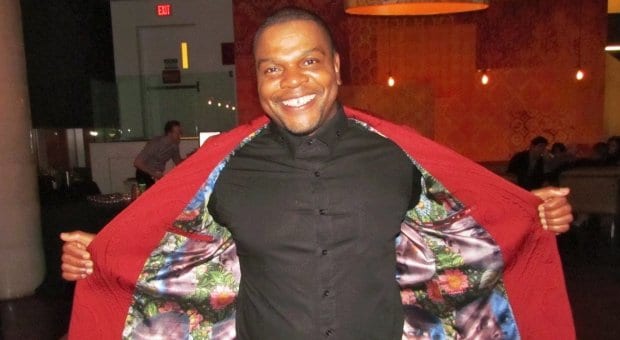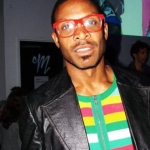Since its inception in 2001, the ReelWorld Film Festival, dedicated to showcasing documentaries, feature films and videos about art and artists from diverse communities, has welcomed films from 450 countries and has included 90 world premieres, 36 international premieres, 240 Canadian premieres and 129 local Toronto premieres.
This year’s festival features the world premiere of An Economy of Grace, a documentary about portrait painter Kehinde Wiley. Wiley has made quite a name for himself over the last decade. Raised in South Los Angeles, he was seen as a prodigy from an early age. “Kids would see that I could draw a car that actually looked like a car, and they all wanted one,” he recalls. His talent in figurative and portrait painting led to a master’s of fine arts degree from Yale University, where he studied the works of the old masters. Fast forward to today: Wiley sits in the audience of the TIFF Bell Lightbox theatre, a few seats from me, as we watch the premier of a film, directed by Jeff Dupre, that focuses on his work.
As the theatre darkens, powerful images of black male faces with seductive lips and tight bodies in loose clothing illuminate and dominate the screen. Seriously, I want to climb up into the celluloid and mesh my flesh with the oils used on his canvas. But Wiley has done much more than present images of attractive men for our voyeuristic pleasure (and my fantasies tonight); he has placed each in an unfamiliar context, in the historical poses of the great paintings created by the old masters before him. Further layering this artistic mashup is his use of Photoshop and hand-painted backgrounds, which envelope, embrace and frame his subjects.
The film follows Wiley as he begins work on a new series. He’s been asked to paint all women, a first for him. “Obviously, I find the male figure sexually more exciting,” he says. It’s my Oprah aha moment: he’s one of us. We see Wiley walking the streets of Brooklyn looking for potential models, then collaborating with Riccardo Tisci, head designer for Givenchy, to create specially designed haute couture dresses for these women. The film is linear and concise, giving glimpses into Wiley’s personal life: walking his dogs, designing his own flashy custom suits and speaking Mandarin to his Chinese colleagues. It also addresses one key aspect of his success: the issues of race, status and class that are portrayed in his paintings.
Though the original source of the title of the film, and the exhibit it’s named for, is a biblical quote — “In God’s surprising economy of grace, the last shall become first and the first shall become last” — Wiley first became aware of it when he read The Honor Code, by Kwame Anthony Appiah. “It’s an amazing statement that allows a kind of circularity,” Wiley says in response to Suzanne Boyd, editor of Zoomer magazine, in a post-screening talk. “That simple line about an economy of grace: how we negotiate the handing out of power, the consuming of power. But is that power based on cash? Is it based on might? Is it based on sheer brute force or is it based on race?”
By giving space to people of colour in these masterful artworks, Wiley is indeed giving power where power has never been given before.
ReelWorld Film Festival runs Sun, March 2 to Wed, March 12.
reelworld.ca


 Why you can trust Xtra
Why you can trust Xtra


